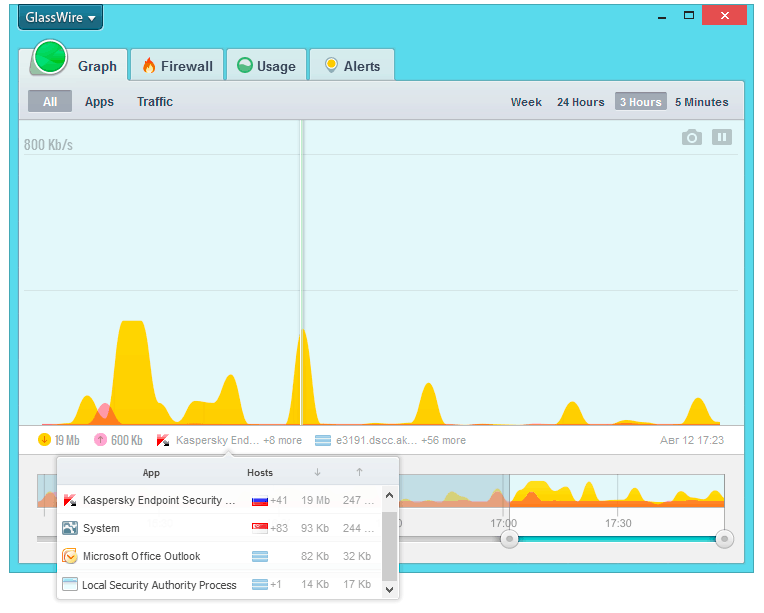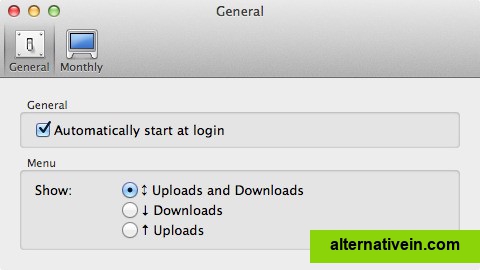- Bandwidth Definition
- Bandwidth Definition
- Bandwidth Meter
- Bandwidth Meaning
- Bandwidth+ Dmg Download
- Bandwidth Calculator
- Bandwidth+speed+test
Does internet speed confuse you? Do you scratch your head when you hear the words megabits, bandwidth or latency?
Bandwidth is the speed at which data travels to and from your computer and is generally controlled by your Internet provider. However, there are ways you can increase the bandwidth speed. Windows operating systems reserve a certain amount of bandwidth for its application requirements, but rarely uses the alloted amount. Network Bandwidth Analyzer Pack. I’m a big fan of this bandwidth monitoring software bundle from. Network usage meter for Mac.
Don’t worry, you’re not alone.
Lots of people are confused with internet speed. They don’t know what internet speed is, how it works and why they should pay extra for more of it. But it’s the internet service providers biggest selling point, so speed must be important… right?
I’ll leave that up to you to answer. To help you out, though, this article will answer the following questions:

Bandwidth Definition
- What is internet speed?
- How does internet speed work?
- What is kbps, mbps, MBps and gbps?
- What is the difference between upload and download speeds?
- What affects my internet speed?
Let’s get started.
We’ve collected phone numbers for the biggest ISP’s within the US. Reach out now, and get a plan that fits your needs.

| Provider | Phone number |
|---|---|
| DISH | 833-826-1132 |
| FRONTIER | 855-917-9691 |
| Hughesnet | 855-917-9685 |
| Centurylink | 833-270-5717 |
| Windstream | 833-826-1196 |
| Spectrum | 855-917-9721 |
| ATT | 855-917-9634 |
| Verizon | 844-603-6536 |
Want the fastest internet speed at an affordable price? Find the best provider based on your needs:
Each page will open in a new windows so that you can finish reading this guide.
What is Internet Speed?
Internet speed, the number they give you (5 Mbps, for example), has nothing to do with how fast your internet works. It’s not like a car or motorcycle where you can measure how fast it goes in miles per hour (mph).
Instead, internet speed is your (allocated) bandwidth. Bandwidth is the amount of data that can be sent to you, usually measured in seconds. For example, 5 Mbps would mean that you can receive up to 5 megabits of data per second.
How Does Bandwidth Work?
The best way to explain (and understand) how bandwidth (and your internet speed) works is by using an analogy.
Think of bandwidth like a freeway. All cars (data) travel at the same speed, so to get more data from the internet to your computer faster, the freeway needs to be wider.
In other words, say 1 Mbps is the equivalent to a 1 lane freeway. And let’s say that you were trying to download an image, which is 5 Mb in size. So if you had a bandwidth of 1 Mbps (1 lane freeway) it would take you roughly 5 seconds to download the image.
Now let’s say that you have a 5 Mbps (bandwidth) connection, or a 5 lane freeway. How fast will you receive your image? 1 second.
More bandwidth means that you’ll receive more data at the same time. In this example, you can download 5 images with the wider bandwidth in the same time you could 1 with the narrower bandwidth.
What’s important to note here, and this confuses a lot of people, is that your internet isn’t any faster from 1 Mbps to 5 Mbps, or however much bandwidth your connection has. Your data is just transferred to you at a faster rate because more data can be sent at the same time. It’s more efficient, making your internet perceptually faster, not technically faster.
All of that said, there isn’t just one internet speed. However, real “internet speed” has to do with latency and that topic is outside the scope of this particular article. You can read about latency here.
What is kbps, mbps, MBps and gbps?

Another confusing aspect of shopping for internet based on speeds are all the terms or abbreviations being used. Mbps, MBps, kbps, Gbps; what does all of this mean?

These are the abbreviations for the amount of data that is being sent per second. Here is what each of them mean. Below that I’ve outlined a basic conversion guide and a rough idea as to how big each piece of data you consume is.
- kbps – Kilobits per second. This is used when talking about dialup (56k for example) and low speed DSL.
- Mbps or mbps – Megabits per second. Some people confuse this with megabytes. The difference between the two is how the “b” is written in the abbreviation; Mbps = megabits and MBps = megabytes. This is the most common unit of speed used.
- MBps – Megabytes per second. Megabytes aren’t usually used in (residential) internet plans.
- gbps – Gigabits per second. Gigabits are hardly used for internet plans, and the costs make them unpractical for families and small businesses.
Bandwidth Definition
Converting Units of Internet Bandwidth
To give you a better idea how much bigger or small each unit of speed (bandwidth) is, here is a handy conversion chart. You can also visit Numion and play with their calculator.
- Bytes > Bits: Multiply by 8
- Bits > Bytes: Divide by 8
- Mega > Kilo: Multiply by 1,000
- Kilo > Mega: Divide by 1,000
- Giga > Mega: Multiply by 1,000
- Mega > Giga: Divide by 1,000
- Giga >Kilo: Multiply by 1,000,000
- Kilo > Giga: Divide by 1,000,000
Units of Bandwidth & The Data You Use
Here are some things that you do on the internet and how much bandwidth (and data) it uses up:
- 1 Web Page – 1 MB
- 1 Text Email – .97 MB
- 10 Min YouTube Video – 43 MB
- Download 1 Image – 2.5 MB
- 30 Min of Gaming – 2.5 MB
What is the Difference Between Upload and Download Speeds?
Another confusing thing about shopping for internet is when you see speeds listed like this:
5/1 Mbps
What does this mean? Well, that means that internet plan has a download speed of 5 mbps and an upload speed of 1 mbps.
The reason why your upload and download speed are different is because most internet connections are asymmetric. In English this means that the bandwidth is a different size going one way compared to the other. Since most users consume content rather than upload it, the bandwidth for download speeds is larger (than the upload).

What Affects My Internet Speed?
There are a number of things that will (negatively) affect the speed of your internet.
Connection Type
Connection type plays a big role in how fast of an internet connection you’ll have. Using my analogy from earlier, some roads (bandwidth) are fixed or capped — they can’t be widened or increased. Dialup, and to some extent DSL, are perfect examples of this.
Traffic Congestion
Ok, I can’t help it; I’m going to use my analogy again. It’s just goes hand in hand with internet speeds.
Anyway, your internet can become congested just like a freeway can. The more data (or cars) that is being requested and sent, the more bandwidth (freeway lanes) that is being used at one time. At some point every lane is going to be taken up, so the cars (data) will take more time to get to you.
Congestion usually happens during peak usage times, like when everyone gets off work and logs onto the internet. But you can also experience slower speeds if you have a home network (and everyone is online) or someone using your wireless connection from outside your home.
Bad/Old Wires, Connections or Equipment
Think of bad wires and connections like a freeway that goes from 5 lines to 1 all of a sudden. That forces all of the cars (data) to bottleneck, ultimately taking longer to get to you.
The same thing holds true for your equipment. If you have outdated equipment, or your equipment isn’t configured optimally, that can slow down how fast you receive your data.
Bandwidth Meter
Distance
Bandwidth Meaning
The further away you are from your ISP (hub) the longer it’ll take for the data to transfer from the internet to your computer.
Bandwidth IG’s metro dark fiber helps enterprises solve high capacity broadband needs with speed and scalability.
Bandwidth+ Dmg Download
Our AdvancedNetwork Solutions
Bandwidth IG serves as a trusted partner. We collaborate with our customers to help them attain excellence in a network that meets their unique needs.
Data Center Connect
Tie your data centers together with brand new, low-latency dark fiber
Corporate Connect
Meet your enterprise’s growing data requirements using one of the fastest, most secure and scalable networks
Custom Solutions
Bandwidth Calculator
Build a custom network designed to meet your unique needs
Learn More About Our Robust Network
Bandwidth IG operates the go-to dark fiber network throughout Northern California and Greater Atlanta.
Reach
On-net presence in nearly all strategic data centers in our markets. Continual focus on rapidly expanding our footprint to include business campus clusters.
Diversity
Bandwidth+speed+test
Our network is designed to minimize overlap with other network operators. Multiple unique routes ensure the highest levels of security and reliability.
Scalability
Our newly constructed network means minimal degradation. The backbone is 100% underground and includes multiple conduits that are populated with high-count, state-of-the-art fiber cables.
Customization
We partner with you to deliver tailored solutions that meet your needs. We pride ourselves on being flexible, nimble and delivering on our promises.
